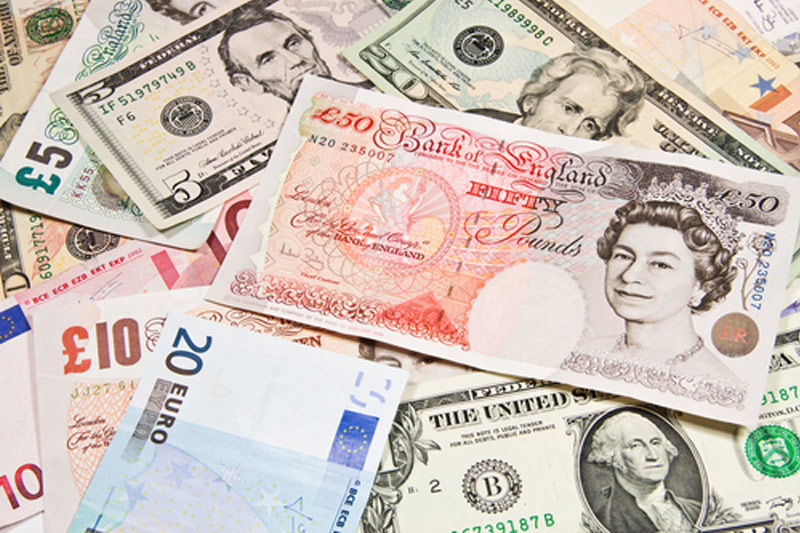Gold prices edge lower; heading for weekly losses ahead of U.S.-Russia talks
By Peter Nurse
Investing.com - The U.S. dollar edged lower in early European trading Friday as sterling and the euro stabilized near one-week highs, helped by intervention by the Bank of England and the expectation of aggressive tightening by the European Central Bank.
At 03:05 ET (07:05 GMT), the Dollar Index, which tracks the greenback against a basket of six other currencies, fell 0.3% to 111.903, close to the one-week low of 111.64 reached in the previous session.
GBP/USD traded 0.3% higher at 1.1157, having earlier climbed above 1.12 in the Asian session, taking it very close to erasing all of the sharp losses in the aftermath of the new government's unfunded tax-cutting mini budget last week.
This rebound followed the Bank of England announcing emergency bond buying, shoring up the gilt market and by association the pound.
"Events in the UK … marked the first time this stagflationary macro environment risked evolving into a financial crisis," said analysts at ING, in a note. "Fortunately, the Bank of England intervened aggressively in the Gilt market and market conditions have temporarily stabilised. However, there will be no room for complacency this autumn as volatility returns to 2020 highs."
Sterling has also been helped by data showing the U.K. economy grew 0.2% in the second quarter, a surprise improvement on the previous estimate of a fall of 0.1%, and averting a summer recession.
EUR/USD edged higher to 0.9817 as French inflation showed some sign of moderation, falling 0.5% on the month in September.
The pair had climbed as high as 0.9844 earlier in the session after strong German consumer inflation data, released on Thursday, pointed to more aggressive interest rate hikes by the ECB ahead of the release of the Eurozone CPI number later in the session.
The euro remained pressured, however, by the difficult geopolitical situation, with the region suffering from an energy crisis as Russia’s war in Ukraine continues.
The EU energy ministers are set to meet later Friday to discuss their options to punish Russia further with President Vladimir Putin set to announce the annexation of another four regions of Ukraine later in the day.
The U.S. dollar has been in demand of late, climbing to 20-year highs, as Fed policymakers point to further rate hikes to curb inflation at historic highs.
However, there was a slight crack in that resolve when San Francisco Fed President Mary Daly repeated concerns on Thursday she raised earlier this week about tightening policy too much and the implications that could have for the U.S. economy.
USD/JPY fell slightly to 144.32, trading largely sideways below the psychologically important 145 line since Japanese officials stepped in to conduct their first yen buying intervention since 1998 last week.
The risk-sensitive AUD/USD rose 0.1% to 0.6503, while USD/CNY slipped 0.5% to 7.0900 after the official Chinese PMI data showed the country’s manufacturing sector unexpectedly grew in September.
